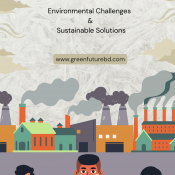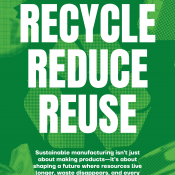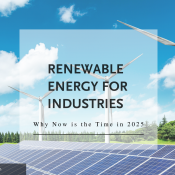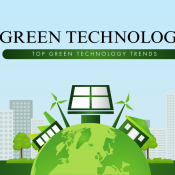Green Technology Trends for Industries in 2025
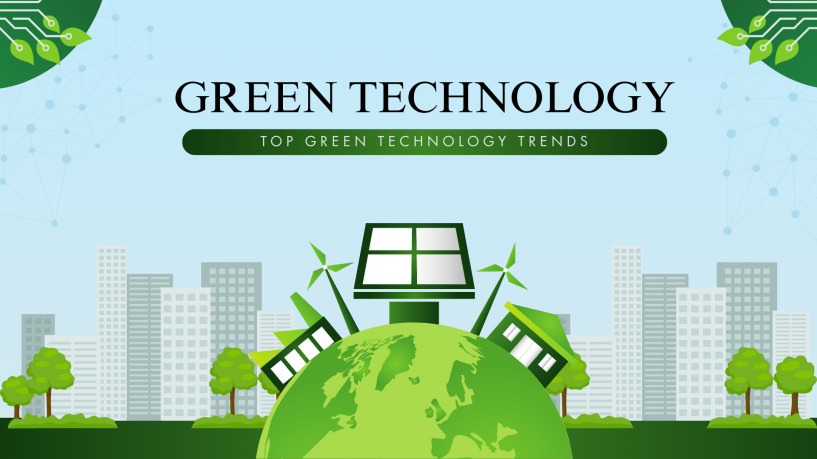
The global shift toward sustainability is no longer optional—it’s a business imperative. As we enter 2025, industries across the world are embracing green technologies to reduce their carbon footprint, minimize waste, and comply with environmental regulations. This transformation isn’t just about saving the planet; it’s about saving costs, improving efficiency, and staying competitive in a rapidly evolving market.
In this article, we will explore the top green technology trends for industries in 2025 and how companies can leverage these innovations to build a sustainable future. If you are looking for expert guidance on implementing green technology solutions, visit greenfuturebd.com—a leading eco-consultancy firm in Bangladesh dedicated to driving industrial sustainability.
Why Green Technology Matters in 2025
The urgency to adopt sustainable solutions has never been greater. With climate change accelerating and governments enforcing stricter environmental regulations, industries are under pressure to:
- Reduce greenhouse gas emissions
- Lower energy consumption
- Implement circular economy practices
- Meet ESG (Environmental, Social, and Governance) standards
Green technologies not only help in meeting these goals but also drive innovation and profitability. According to recent studies, companies that integrate sustainable technologies into their operations see up to 20% reduction in operational costs and 30% increase in brand reputation.
Top Green Technology Trends for 2025
1. Renewable Energy Integration at Industrial Scale
One of the most significant trends in 2025 is the widespread adoption of renewable energy sources such as solar, wind, and bioenergy. Industries are shifting from traditional fossil fuels to on-site renewable power generation, reducing dependency on grid electricity and cutting down energy bills.
- Solar power plants are being installed on factory rooftops.
- Wind energy projects are integrated into industrial parks.
- Biogas systems are being used for heat and power generation in food and agriculture sectors.
Why this matters: Renewable energy adoption is no longer just about compliance; it’s a cost-saving strategy that strengthens energy security.
For industrial renewable energy consulting, check out greenfuturebd.com for customized solutions in Bangladesh.
2. Green Hydrogen as a Clean Fuel
Green hydrogen is emerging as the fuel of the future. Produced using renewable energy through electrolysis, green hydrogen offers zero carbon emissions and can replace fossil fuels in heavy industries such as steel, cement, and chemicals.
Key benefits of green hydrogen in industries:
- Decarbonization of high-emission processes
- Storage of renewable energy for continuous supply
- Reduction in dependency on imported fossil fuels
By 2025, several industrial giants have already launched pilot projects for green hydrogen-based operations. This trend is expected to dominate the energy landscape in the coming decade.
3. Energy-Efficient Smart Factories
Industry 4.0 meets sustainability with smart factories powered by IoT (Internet of Things), AI (Artificial Intelligence), and advanced automation. These technologies optimize energy consumption, reduce waste, and improve productivity.
Examples of green smart factory initiatives:
- IoT sensors monitoring real-time energy use
- AI-driven predictive maintenance to avoid resource wastage
- Automated systems optimizing production schedules to minimize energy peaks
This approach not only reduces environmental impact but also cuts operational costs significantly.
4. Circular Economy and Waste-to-Resource Technologies
The circular economy is a game-changer for industrial sustainability. Instead of a take-make-dispose model, companies are adopting reuse, recycle, and repurpose strategies.
Key innovations include:
- Industrial symbiosis: One company’s waste becomes another’s raw material.
- Advanced recycling technologies for plastics, metals, and electronic waste.
- Waste-to-energy plants converting organic waste into biogas or electricity.
Companies in Bangladesh are now turning to experts like greenfuturebd.com for implementing waste-to-resource solutions that align with global sustainability goals.
5. Water Recycling and Zero Liquid Discharge (ZLD) Systems
Water scarcity is one of the biggest challenges in industrial operations. To address this, industries are investing in advanced water treatment systems such as:
- Effluent Treatment Plants (ETP)
- Sewage Treatment Plants (STP)
- Membrane Bioreactors (MBR)
- Zero Liquid Discharge (ZLD) systems
These solutions help reuse wastewater, reduce freshwater demand, and prevent environmental contamination.
If your industry needs ETP/STP design, implementation, and compliance assistance, consult greenfuturebd.com for expert services.
6. Carbon Capture, Utilization, and Storage (CCUS)
Industries producing large amounts of CO₂—such as cement, steel, and chemical plants—are adopting carbon capture technologies to meet emission targets. CCUS involves:
- Capturing CO₂ emissions at the source
- Storing them underground or
- Utilizing CO₂ to produce other industrial products like synthetic fuels.
By 2025, the cost of CCUS technology has dropped significantly, making it a viable option for large-scale industries.
7. Sustainable Supply Chains
Consumers and regulators are demanding transparent and sustainable supply chains. Technologies such as block chain and AI-powered analytics are enabling companies to:
- Track carbon footprint across the supply chain
- Ensure ethical sourcing of raw materials
- Minimize transportation emissions through optimized logistics
Sustainable supply chains not only meet ESG goals but also boost consumer trust and brand value.
8. Electrification of Industrial Equipment
Replacing fossil-fuel-based machinery with electric-powered alternatives is a key trend. Electrification:
- Reduces direct CO₂ emissions
- Improves energy efficiency when paired with renewable energy
- Lowers operational costs in the long run
For example, electric boilers are replacing coal-fired boilers in textile and food industries.
9. AI and Big Data for Energy Optimization
AI-driven analytics can predict energy demand, optimize processes, and reduce energy waste. Big data helps industries analyze consumption patterns and implement energy efficiency measures effectively.
By 2025, AI-based energy management systems are becoming standard practice in energy-intensive sectors.
10. Green Building Standards for Industrial Facilities
Industries are adopting LEED (Leadership in Energy and Environmental Design) and EDGE (Excellence in Design for Greater Efficiencies) certifications for their plants. These standards ensure:
- Efficient use of natural light and ventilation
- Low-carbon construction materials
- Energy and water-saving systems
The Role of Green Technology in Bangladesh’s Industrial Future
Bangladesh is one of the fastest-growing economies in Asia, and its industrial sector is booming. However, this growth must be sustainable to protect natural resources and public health. The adoption of green technologies in industries such as textiles, garments, steel, cement, and food processing is crucial.
Organizations like greenfuturebd.com are playing a pivotal role by:
- Designing and implementing ETP/STP systems
- Providing environmental compliance solutions
- Developing green energy strategies for factories
- Supporting industries in achieving international sustainability certifications
Challenges in Adopting Green Technologies
While the benefits are clear, some challenges include:
- High initial investment costs
- Lack of technical expertise
- Regulatory uncertainties
- Resistance to change in traditional industries
These challenges can be overcome through government incentives, public-private partnerships, and consultancy services from experts like greenfuturebd.com.
Green technology trends in 2025 are shaping the future of industries globally. From renewable energy and hydrogen fuel to circular economy and AI-driven optimization, these innovations are revolutionizing the way industries operate.
Adopting green technologies is no longer an option—it’s a necessity for survival, compliance, and profitability. Companies that take action today will lead the market tomorrow.
For expert guidance on implementing sustainable solutions in your industry, visit greenfuturebd.com—your trusted partner for environmental consultancy in Bangladesh.
Published on: Wednesday, 20 August 2025, 01:36 pm ▪ Last update: Wednesday, 20 August 2025, 04:08 pm ▪ Total View of this Page: 755



